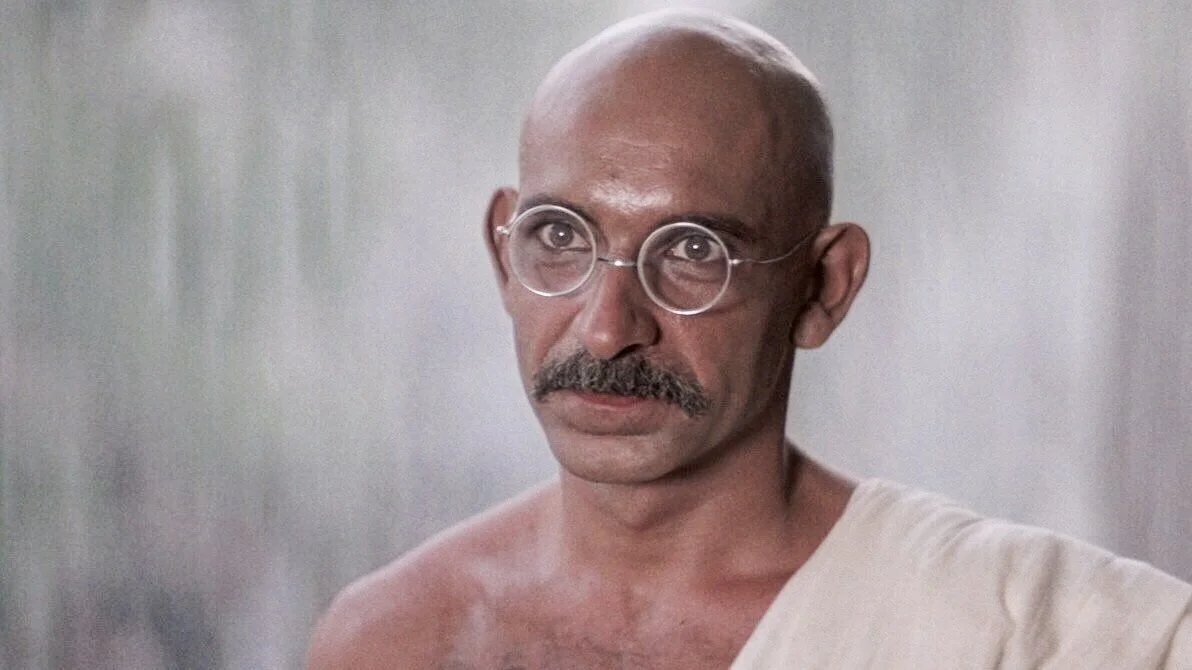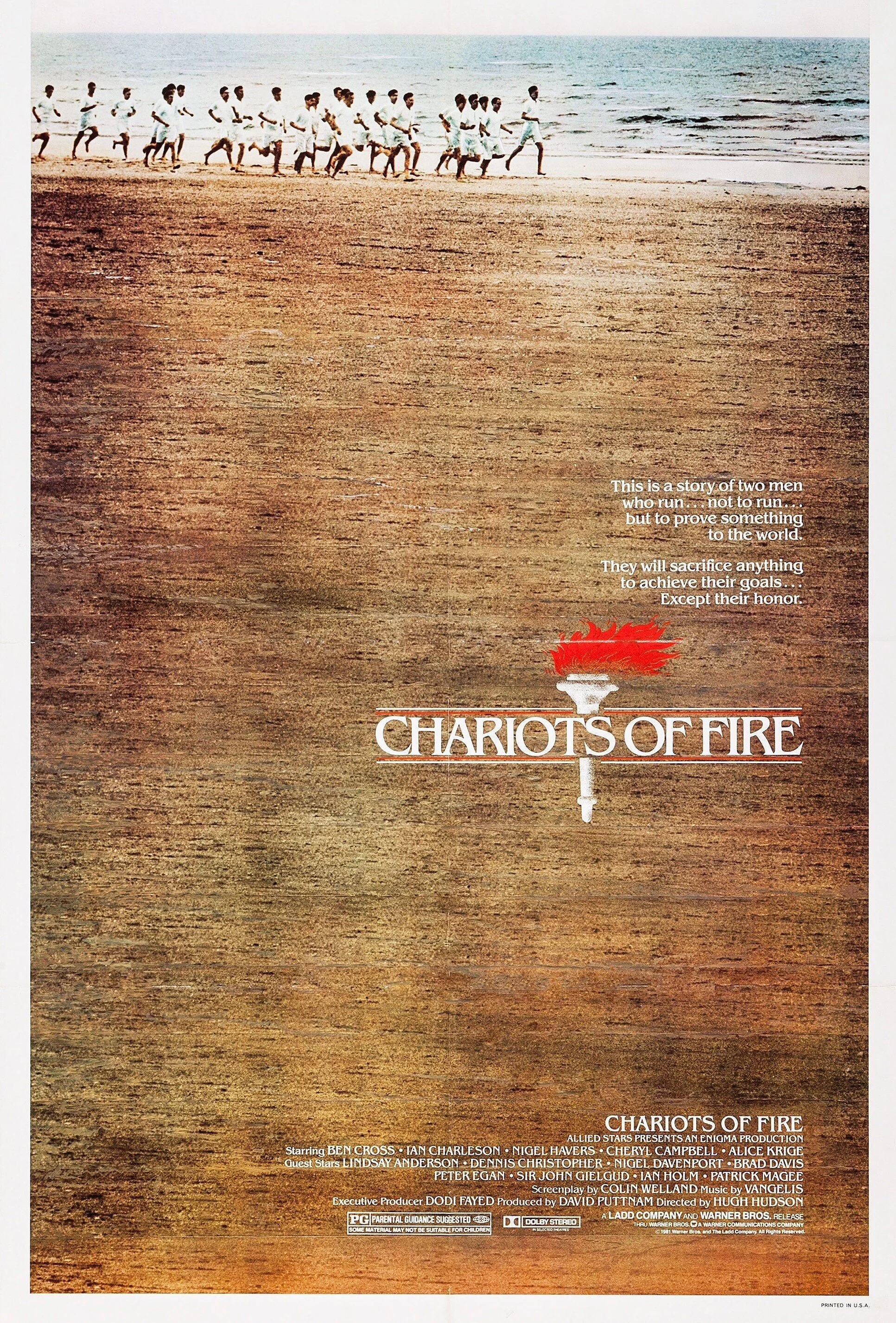Gandhi (1982)
Written by John Briley
Directed by Richard Attenborough
As I reflect on it, I’m not entirely sure what to make of Gandhi. Sure, it was a good film, but I’m not entirely sure what it’s overall significance to the list is. Is it the first biopic? No, there’s about six others that came before it. Is it the first film that features white men as the antagonists? No, In the Heat of the Night has it beat there, too. So, is it bringing anything new? I’d have to say no, but that doesn’t make it any less interesting.
Covering the last 55 years of his life, Gandhi features quite a lot of storytelling in its three hours, but it never really feels rushed, at least, once the film gets going. The beginning is a little choppy: after starting with (SPOILER ALERT) his assassination and funeral in 1948, we flash back to 1893 when he’s thrown off a train for sitting in a white section, then he learns that Indian men don’t have the same rights as whites in South Africa (despite South Africa and India being a part of the British Empire), and suddenly he and his wife are living in an ashram and they’re fighting? That all took about 20 minutes, and I was just like PLEASE SLOW DOWN. The rest of the film plays pretty naturally. There’s amazing sequences of beautiful cinematography, and while I didn’t enjoy the semi-frequent use of the title, “Some Months Later”, it never felt too rushed once we get past that beginning.
A superb Ben Kingsley as Gandhi
What really drives this film are the performances, starting with Ben Kingsley as Gandhi. His work in the film is truly masterful, and his win for Best Actor is truly deserved. He isn’t helped, however, by the weird editing choices; for example, he slowly changes his appearance as the film goes on, with no real explanation, but then again, that probably isn’t the point. This is a role that could’ve been done very poorly, but Kingsley tackles it with apparent ease (although that couldn’t have been the case).
Surrounding him are tons of little cameos that were fun, if not a bit distracting (Martin Sheen! Candice Bergen! The Guy From Chariots of Fire! Uncle Vernon!). It did grow wearisome after a while, and it did take me out of the story a bit, but I was able to generally stay engaged in the action.
The epic funeral scene that opens the film
There were two scenes of note in the film, neither of which actively involved Kingsley. First was the funeral procession, which still holds the world record for most extras involved in a single scene: 300,000! It’s a hugely epic and impressive scene, and it doesn’t even last that long in the film. The other is the depiction of the Jallianwala Bagh massacre in 1919, in which British troops open fire on a large crowd of Indians. It’s a jaw-dropping sequence, made horrific by the single shot of a crying baby surrounded by the dead and ignored by the fleeing masses. It was a stab to the heart, and gives a lot of motivation for the second half of the film.
Overall, as great as this film, and its lead performance, is, I also don’t have a ton of feelings one way or the other about it. It’s almost as if the film just...exists. It’s technical elements are all great, there’s some great creative choices, but I didn’t come away from the film feeling like I learned anything about the character or got any new insight into him. It succeeds as a telling of his story, but I don’t feel any differently than I did before, which, for a person as well known and revered as Gandhi, I feel like shouldn’t be the case.
FINAL GRADE: B-





